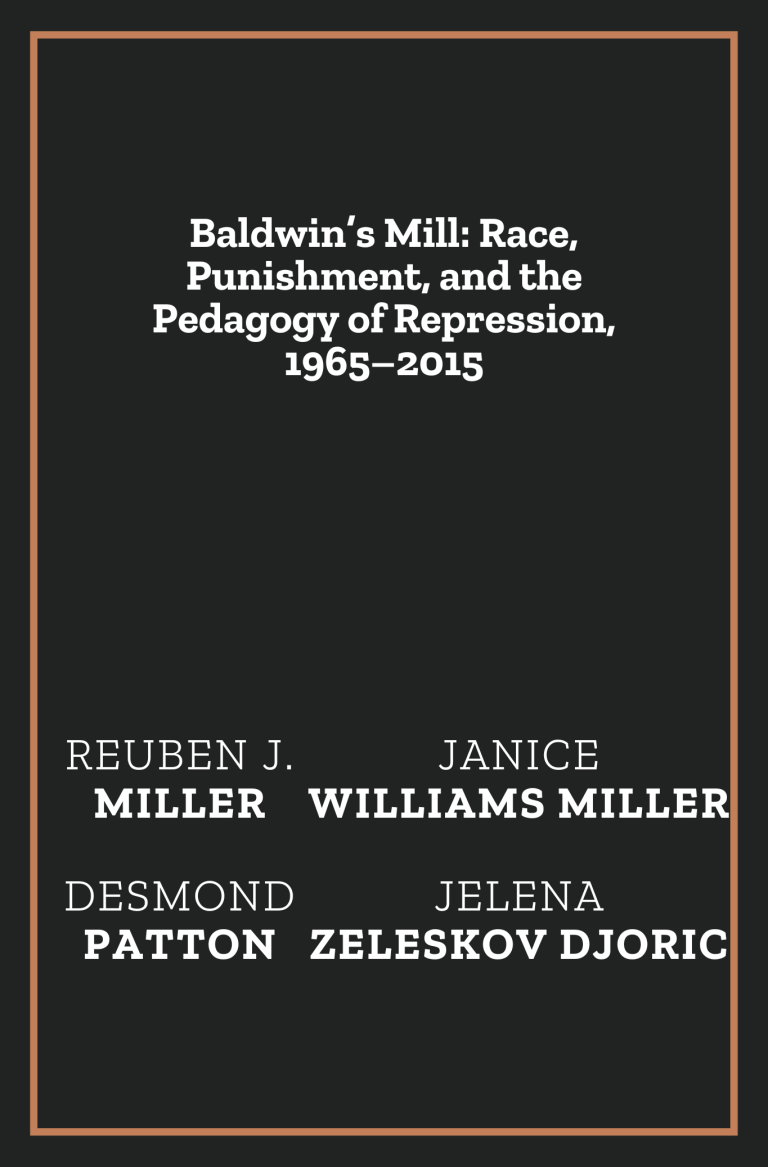From Humanity and Society
Written in the 50th anniversary of the historic debate between author and social critic James Baldwin and the “father of American conservatism” William F. Buckley, we extract from the corpus of Baldwin’s social critique a method to grasp emergent forms of marginality in the contemporary age. Described as a mill, Baldwin shows how everyday interactions shaped the behaviors and meaning making of Black Americans during the civil rights era, teaching them to repress their feelings, motivations, and desires at the threat of violence. Inspired by Baldwin, we apply this analytic to mass imprisonment and the rise of prisoner reentry as a national policy priority. Attending to the “work” of reentry in the lives of the black poor, we find that the institutional and policy arrangements that gave birth to prisoner reentry, coupled with the exclusion of the criminalized poor from full participation in the social, civic, and economic life of the city operates as a pedagogy, locating the presumed black and criminalized poor within a social hierarchy and situating them within a moral taxonomy.

